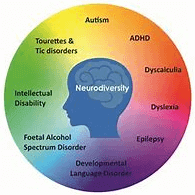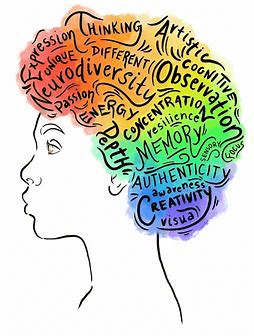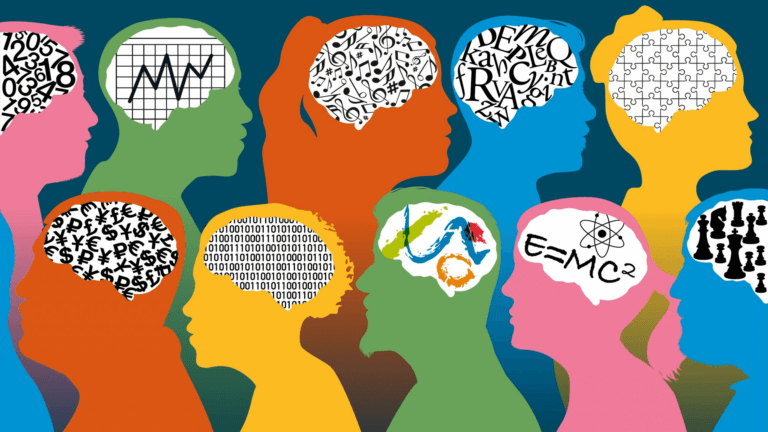
Neurodiversity is a hot topic in many different areas of society right now, including mental health, employment, and, perhaps most prominently, in child development and education. Neurodiversity is a model that portrays how all people perceive the world, and process information differently. Rather than alienating those with ADHD, autism and other similar diagnoses, neurodiversity presents different people as needing different provisions and ways of doing things, and this includes those that might be labelled as ‘neurotypical’.
Independent Clinical Psychologist, and author, Dr Naomi Fisher has written a fascinating article for the British Psychological Society which explores how the needs of neurodivergent children are not being met in mainstream schools, and attributes this to a wider social problem of how we perceive neurodivergence as an affliction that needs fixing rather than something that can be accommodated
Dr Fisher discusses how the “Brain or Blame Model” is often used in schools whereby children who struggle are often either blamed for their difficulties or are overlooked because of their diagnosis. In both cases, the problem is placed on the child and their family, and nothing is done to make their situation easier from an educational perspective.
She also describes how the one-size-fits-all approach to education is highly problematic as the vast spectrum of neurodiversity means that standardised education systems are not going to work for every child, regardless of whether they have any kind of diagnosis. Therefore, it is the school environment that needs to be modified, not the child.
Dr Fisher proposes an extreme alternative to mainstream schooling for neurodivergent children whose needs aren’t being met. Self-directed learning is a form of education where children take charge of their own learning. Unlike traditional schooling, where the curriculum is dictated by schools and the government, self-directed learning can give learners the autonomy to make these decisions themselves. This approach acknowledges that individuals have unique interests, strengths, ways of learning, and respects their agency in shaping their educational journey.
Self-directed learning, in combination with homeschooling, can offer neurodiverse children the opportunity to explore subjects according to their interests and abilities. It can also nurture motivation and empower them to take ownership of their own education.
Evolve understands how neurodivergent children can struggle at school where their specific needs are neither understood nor provided for, and how this can impact their emotional wellbeing, academic outcomes, and behaviour. We agree with Dr Fisher that the Brain or Blame Model is both problematic and unhelpful.
We also see the benefits of self-directed home-schooling for those who are struggling the most. However, this is not a viable solution for everyone. In households where both parents work full-time, or in single-parent households, balancing home-schooling with work commitments, household chores, and other responsibilities might present considerable challenges. Attempting to manage these demands simultaneously could compromise the quality and consistency of the child’s education and longer term development.

Therefore, we believe that schools could facilitate a better and more diverse learning environment. One way that this could happen is with the support of a Health Mentor. Evolve Health Mentors work with children and young people who have behavioural problems, struggle with emotional wellbeing and mental health, or just need that extra support to help them engage with learning in traditional classrooms.
Health Mentors have an outstanding track record of improving educational engagement and overall wellbeing. They are able to work with students 1:1, regardless of whether or not they have a neurodivergent diagnosis. They determine what kind of adjustments or tailored provision is needed for their mentees to thrive in the school environment. Health Mentors serve as an additional link between families and schools communicating what is needed for their child, at school and at home.
While self-directed home-schooling presents promising opportunities for neurodivergent children, it’s essential to recognise the practical challenges it poses for many families. Through raised awareness of neurodiversity and inclusive educational practices, schools can shift toward a more supportive learning environment. Having Health Mentors in schools can be a promising first step in accommodating diverse learning needs and creating a more inclusive educational system.
You can read Dr Fisher’s article in full here: https://www.bps.org.uk/psychologist/what-does-neurodiversity-really-imply-education
